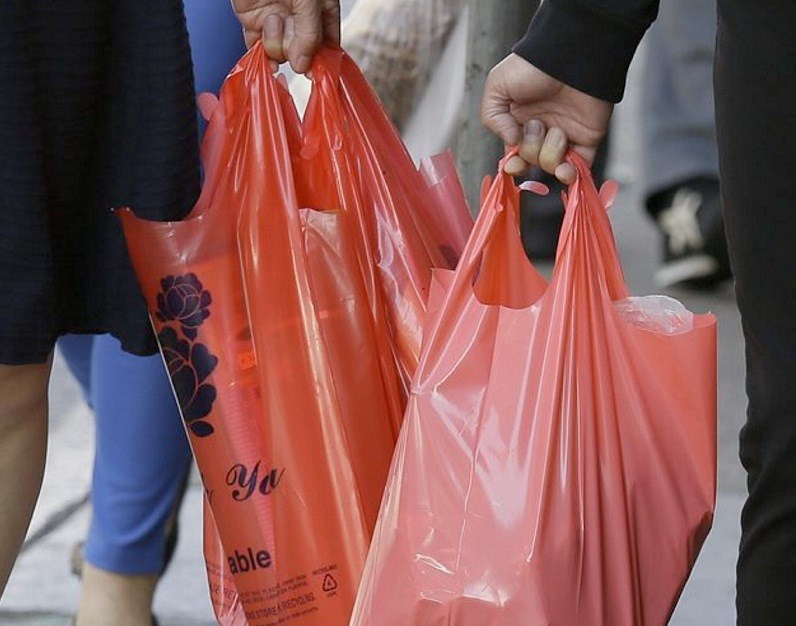Victoria’s planned ban on single-use plastic bags is moving ahead and set to take effect July 1.
City councillors have agreed to implement the new bylaw and set aside $30,000 from 2017 surplus funds for public education on the ban.
Under the bylaw, businesses will be prohibited from providing customers single-use plastic bags. They will be allowed to provide paper or reusable bags to customers, for a minimum fee of 15 cents for paper bags and $1 for reusable bags, increasing to 25 cents and $2 respectively on July 1, 2019.
Businesses could be fined for providing customers a bag without asking if they want one, or for providing a bag free of charge.
Fines could range between $100 and $10,000 for corporate offenders and between $50 and $500 for individuals for every offence. Enforcement is not set to begin until 2019.
Retailers will be allowed to use their existing bag stock up to January 2019 without penalty.
Director of engineering Fraser Work said the city’s emphasis will be on public education and awareness.
“The intent is not to fine individuals. The intent is that everyone would, of course, comply so no fine would ever be required,” Work said.
Coun. Geoff Young, the lone council member to vote against the bylaw moving ahead, said he would prefer such and action was taken provincially, or at least regionally rather than the city going it alone.
“This is going to be more difficult than we think it is. I think there will be a longer period of public education and public acceptance. I think we may find that there are decisions we want to revisit,” Young said.
But others, such as Coun. Ben Isitt, noted the bylaw has been two years in the making and “it’s time for leadership.”
“I think there is substantial public support, including support from the business community,” Isitt said, noting that 25 months ago, there were already 17 businesses that had phased out single-use plastic bags, including Thrifty Foods, which phased them out a decade ago.
Coun. Jeremy Loveday said Victoria might be leading the region with the initiative, but it’s behind many municipalities and countries around the world.
But Craig Foster, sustainability consultant for the Canadian Plastics Industry Association, said Victoria council is making a huge mistake and ignoring science with the bag ban.
Producing paper bags and reusable plastic woven bags creates more greenhouse gas than the plastic bags being banned. Victoria’s decision might look good or feel good, but the science isn’t there to back it up, he said.
“I really think they are going down the wrong path. It’s not good policy, and from an environmental perspective, it’s a negative. There’s no question,” Foster said.
Exemptions under the bylaw include bags used to:
• package loose bulk items such as fruit, vegetables, nuts, grains or candy
• package loose small hardware items such as nails and bolts
• contain or wrap frozen foods, meat, poultry or fish, whether pre-packaged or not
• wrap flowers or potted plants
• protect prepared foods or bakery goods that are not pre-packaged
• contain prescription drugs from a pharmacy
• transport live fish
• protect linens, bedding, or other large items that cannot easily fit in a reusable bag
• protect newspapers or other printed material left at a customer’s residence or place of business
• protect clothes after professional laundering or dry cleaning



